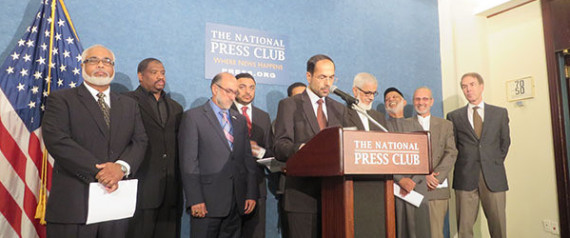On September 24, 2014, 120 Muslim scholars gathered to write an open letter that offered a comprehensive explanation of the Quran and the principles of Islam. This 18 pages letter, signed by new scholars and jurists every day, is addressed to al Baghdadi, self-appointed caliph of ISIS, and it aims at proving how mistaken this terrorist organization’s acts and assertions are. This document will help us understand the main foundations both of Islam and the Islamic law.
Here is the executive summary of their letter:
- It is forbidden in Islam to issue fatwas without all the necessary learning requirements. Even then fatwas must follow Islamic legal theory as defined in the Classical texts. It is also forbidden to cite a portion of a verse from the Qur’an—or part of a verse—to derive a ruling without looking at everything that the Qur’an and Hadith teach related to that matter. In other words, there are strict subjective and objective prerequisites for fatwas, and one cannot ‘cherry-pick’ Qur’anic verses for legal arguments without considering the entire Qur’an and Hadith.
- It is forbidden in Islam to issue legal rulings about anything without mastery of the Arabic language.
- It is forbidden in Islam to oversimplify Shari’ah matters and ignore established Islamic sciences.
- It is permissible in Islam [for scholars] to differ on any matter, except those fundamentals of religion that all Muslims must know.
- It is forbidden in Islam to ignore the reality of contemporary times when deriving legal rulings.
- It is forbidden in Islam to kill the innocent.
- It is forbidden in Islam to kill emissaries, ambassadors, and diplomats; hence it is forbidden to kill journalists and aid workers.
- Jihad in Islam is defensive war. It is not permissible without the right cause, the right purpose and without the right rules of conduct.
- It is forbidden in Islam to declare people non-Muslim unless he (or she) openly declares disbelief.
- It is forbidden in Islam to harm or mistreat—in any way—Christians or any ‘People of the Scripture’.
- It is obligatory to consider Yazidis as People of the Scripture.
- The re-introduction of slavery is forbidden in Islam. It was abolished by universal consensus.
- It is forbidden in Islam to force people to convert.
- It is forbidden in Islam to deny women their rights.
- It is forbidden in Islam to deny children their rights.
- It is forbidden in Islam to enact legal punishments (hudud) without following the correct procedures that ensure justice and mercy.
- It is forbidden in Islam to torture people.
- It is forbidden in Islam to disfigure the dead.
- It is forbidden in Islam to attribute evil acts to God.
- It is forbidden in Islam to destroy the graves and shrines of Prophets and Companions.
- Armed insurrection is forbidden in Islam for any reason other than clear disbelief by the ruler and not allowing people to pray.
- It is forbidden in Islam to declare a caliphate without consensus from all Muslims.
- Loyalty to one’s nation is permissible in Islam.
- After the death of the Prophet, Islam does not require anyone to emigrate anywhere.
Read the full letter here.















No Comments